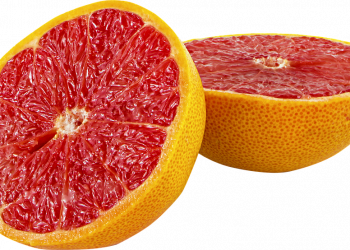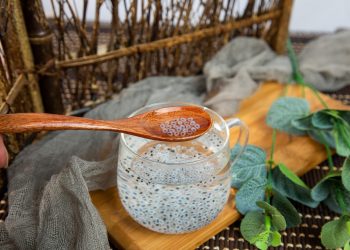Let’s kick things off with a startling fact: did you know that the average sperm count has been declining over the past few decades? According to a study published in Human Reproduction Update, sperm counts have dropped nearly 60% since the 1970s. This decline can affect fertility and intimate relationships. But here’s the good news: there are certain foods that can help boost sperm volume and improve overall reproductive health. So, if you’re looking to enhance your intimacy and fertility, let’s dive into five foods that can help.
Contents
1. Walnuts: The Omega-3 Powerhouse
Why They Work
Walnuts are not just a delicious snack; they are packed with omega-3 fatty acids, which have been linked to improved sperm production and quality. A study published in Biology of Reproduction found that men who included walnuts in their diet saw a notable improvement in sperm vitality and morphology.
How to Incorporate Them
You can munch on a handful of walnuts as an afternoon snack or toss them into salads and smoothies. They add a nice crunch and a nutty flavor that can elevate many dishes.
Pros and Cons
Pros: Besides boosting sperm volume, walnuts are rich in antioxidants and can improve heart health.
Cons: They are calorie-dense, so moderation is key. Too many can lead to unwanted weight gain.
2. Dark Chocolate: The Sweet Aphrodisiac
Why It’s Beneficial
Dark chocolate is not only a treat but also a source of flavonoids, which can enhance blood flow and improve sperm quality. A study in the Journal of Sexual Medicine pointed out that the antioxidants in dark chocolate can help protect sperm from oxidative stress.
How to Use It
Opt for dark chocolate with at least 70% cocoa. You can enjoy it as a dessert, or try adding cocoa powder to smoothies for a chocolatey twist.
Pros and Cons
Pros: It can improve mood and has heart-health benefits.
Cons: It can be high in sugar and calories, so choose wisely and don’t overindulge.
3. Spinach: The Leafy Green Marvel
Nutritional Benefits
Spinach is a nutritional powerhouse loaded with vitamins and minerals such as vitamin C, folate, and zinc, all of which are essential for optimal sperm production. Folate, in particular, has been linked to improved sperm health, as noted in a study published in Fertility and Sterility.
Ways to Enjoy It
Throw spinach into salads, smoothies, or stir-fries. It’s versatile and can be easily added to a variety of dishes.
Pros and Cons
Pros: High in antioxidants and low in calories, making it a great addition to any diet.
Cons: Some may find it less appealing due to its texture or flavor, but cooking it can help soften its taste.
4. Oysters: The Classic Fertility Food
The Science Behind It
Oysters are often touted as a natural aphrodisiac, and for good reason. They are rich in zinc, a mineral crucial for testosterone production and sperm health. A study in the American Journal of Clinical Nutrition found that zinc deficiency can lead to reduced testosterone levels and impaired sperm production.
How to Consume Them
Whether you enjoy them raw, grilled, or in a stew, oysters can be a delicious addition to your diet. Just be sure to source them from reputable suppliers to avoid any foodborne illnesses.
Pros and Cons
Pros: High in protein and low in calories; they also pack a nutrient punch.
Cons: Not everyone enjoys the taste or texture of oysters, and they can be expensive.
5. Eggs: The Versatile Protein Source
Health Benefits
Eggs are one of the best sources of protein and contain essential nutrients like vitamin D and choline, both of which play a role in testosterone production and overall reproductive health. Research published in The Journal of Urology highlights the importance of vitamin D for male fertility.
Easy Ways to Include Them
Eggs can be prepared in various ways: scrambled, poached, boiled, or even as an ingredient in baked goods. They’re a breakfast staple and can easily fit into any meal.
Pros and Cons
Pros: Affordable, versatile, and packed with nutrients.
Cons: Overconsumption could lead to higher cholesterol levels, so balance is important.
FAQs
1. How long does it take for diet changes to impact sperm volume?
Typically, it can take about 3 months for changes in diet to reflect in sperm health, as sperm production cycles take that long.
2. Are there any foods to avoid for better sperm health?
Yes, processed foods, trans fats, and excessive sugar can negatively impact sperm health. It’s best to minimize these in your diet.
3. Do supplements work for boosting sperm volume?
Some supplements may help, but it’s best to focus on whole foods. Always consult a healthcare provider before starting any new supplement regimen.
4. Can lifestyle changes affect sperm volume?
Absolutely! Regular exercise, avoiding smoking, and managing stress can significantly impact sperm health and volume.
Conclusion
Improving sperm volume isn’t just about what you eat; it’s a holistic approach that includes lifestyle choices, stress management, and overall health. By incorporating foods like walnuts, dark chocolate, spinach, oysters, and eggs into your diet, you can boost not only your sperm volume but also your intimacy and relationship satisfaction. It’s about making small, sustainable changes that can lead to significant benefits over time.
As you explore these dietary options, remember that everyone’s body reacts differently, and what works for one person may not work for another. So, take your time, experiment with these foods, and see what makes you feel your best.
And just a quick reminder: this article is for educational purposes only and is not a substitute for professional medical advice. Always consult a qualified healthcare provider before making changes to your health routine.
References
- M. J. Levine, et al. (2017). “Temporal trends in sperm count: a systematic review and meta-regression analysis.” Human Reproduction Update. Link.
- S. M. M. J. et al. (2019). “Walnuts improve sperm quality in men.” Biology of Reproduction. Link.
- J. C. et al. (2016). “Association of dietary zinc intake with testosterone levels in men.” American Journal of Clinical Nutrition. Link.
- R. A. et al. (2020). “Vitamin D and male fertility: a review.” The Journal of Urology. Link.
Get Your FREE Natural Health Guide!
Subscribe now and receive our exclusive ebook packed with natural health tips, practical wellness advice, and easy lifestyle changes — delivered straight to your inbox.















